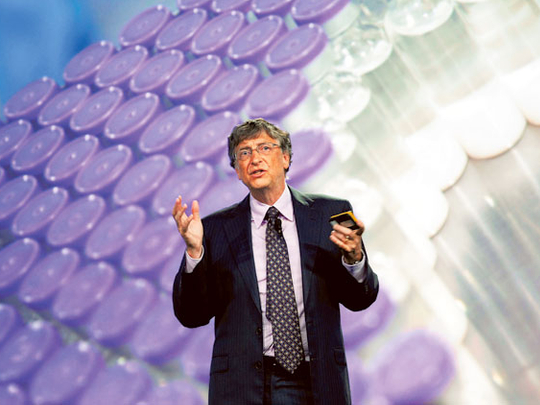
With oil proceeds starting to fill up its coffers by the early 1970s, the late Shaikh Zayed Bin Sultan Al Nahyan immediately assigned a special status to delivering foreign aid.
His vision regarding this type of aid ascribed both a humanitarian as well as developmental perspective, for the recipient of the funds. In fact, his statement — “The wealth given to you by Allah is not yours alone, for those in need also have a share in it” — perfectly encapsulated this approach.
Over the past 43 years, Shaikh Zayed’s dictum on aid has been a consistent policy for the UAE, in extending a helping hand to those nations or societies in dire need, regardless of any political or ethnic considerations.
This is apparent through the nature of the aid offered and the numerous entities and people receiving it. Although many of the developed countries offer aid and such assistance they deem necessary, it is often suggested that they bear a political caveat. In other words, the largesse is basically linked to these donor nations’ best interests, and not founded on complete altruism.
However, with the UAE, we find that the aid packages are delivered strictly conforming to humanitarian reasons and far removed from the power equations on the global arena. This can easily be verified by reviewing the end destination of such aid through the decades.
During the Lebanese civil war, the UAE extended humanitarian aid to all affected groups. After the 16-year conflict ended, the UAE deposited $1 billion with Lebanon’s central bank to back the country’s currency, which had seen a damaging erosion in value as a result of the longstanding war.
The UAE’s backing was to help in reconstructing all of Lebanon without any bias towards one area or another. After the fall of the apartheid regime in South Africa, the UAE was one of the first countries to receive the new President, Nelson Mandela. The UAE was keen to develop co-operation and raise investments in South Africa to help establish a more just society and provide jobs. It opened its doors to receive thousands of expatriate workers as an indirect step to assist in elevating unemployment resulting from years of sanctions-ridden instability in South Africa.
The same approach applied to Bosnia and Herzegovina, Pakistan, Afghanistan and the Philippines and some of the indebted countries in Latin America, where the UAE contributed to, or implemented, hundreds of infrastructure projects for roads, schools and hospitals. These have had an incremental effect of increased growth rates, plus the creation of more employment and improved living standards.
Twin-track approach
The UAE’s leadership has continued this twin-track developmental and humanitarian approach, raising the volume of foreign aid year after year and by substantial amounts.
The total foreign aid provided by the UAE since its inception until the end of 2012 was Dh600 billion ($163.5 billion), of which Dh3.5 billion was distributed in 2012 alone, benefiting 128 countries.
This accounted for 0.65 per cent of the UAE’s GDP in 2012, and is among the highest ratios in the world, whereas the US or EU aid does not exceed 0.3 per cent of their gross domestic product. It shows clearly the scale and significance of UAE’s foreign aid in comparison to its economic size.
In this context, Shaikh Hamdan Bin Zayed Al Nahyan, the Ruler’s Representative in the Western Region and Chairman of the Emirates Red Crescent, pointed out the keenness of the UAE and its leadership to assist in the economic well-being of the disaffected through the establishment of carefully selected development projects, as well as providing all necessary aid during natural disasters.
As part of this assistance package, the Abu Dhabi Fund for Arab Economic Development — founded in 1971 immediately after the establishment of the UAE — provided loans to set up development projects. The size of such funding has touched Dh782.3 million, while the remaining was distributed through contributions to the Red Crescent and charitable institutions in various emirates. The value of humanitarian aid in 2012 reached Dh625 million and that for charities was Dh253 million.
The development and humanitarian aid have been distributed across a large geographical area, with the Middle East — by virtue of multiple crises stalking the region as well as its proximity to the UAE — received 67 per cent of the total aid, followed by North Africa and Sub-Saharan Africa, two of world’s poorest regions.
By the nature of these contributions and their geographical distribution, the role played by the UAE is self-evident. This pattern has also become a model for inclusiveness and fairness. Additionally, it has given the UAE a reputation on the global political stage, not only among countries and peoples receiving the aid, but also with multilateral organisations keen to co-ordinate aid efforts with the UAE.
They do so because they are secure in the knowledge of the country’s transparent and honest support. The UAE is also expected to widen its role in the years to come.
In this regard, Bill Gates, founder and partner at the Bill and Melinda Gates Foundation, during the Abu Dhabi Media Summit held two years ago praised the contribution of the UAE in supporting charitable and health projects carried out by his organisation in a number of countries.
He also noted the substantial support extended by General Shaikh Mohammad Bin Zayed Al Nahyan, Crown Prince of Abu Dhabi and Deputy Supreme Commander of the UAE Armed Forces, to combat polio, which gives the UAE aid a global character and humanitarian dimensions.
In addition to the Abu Dhabi Fund, with its massive financial capabilities, the aid approach includes such initiatives as the Mohammad Bin Rashid Establishment in Dubai and the charity work carried out by several institutions in Sharjah and other emirates.
— Dr Mohammad Al Asoomi is a UAE economic expert and specialist in economic and social development in the UAE and the GCC countries.











